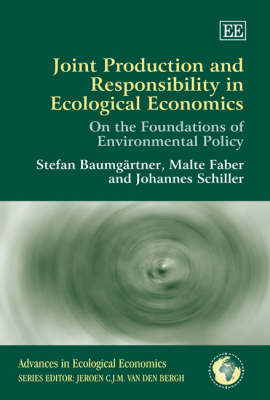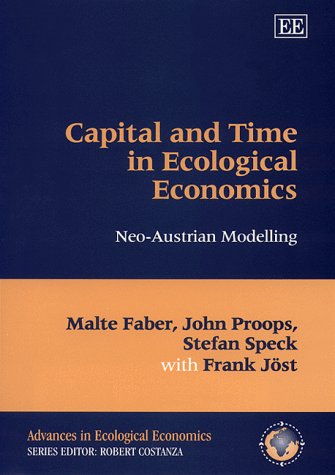Advances in Ecological Economics
2 total works
Joint Production and Responsibility in Ecological Economics
by Stefan Baumgartner, Malte Faber, and Johannes Schiller
Combining concepts and methods from philosophy of science, systems theory, thermodynamics, economics and ethics in a truly interdisciplinary manner, the authors convincingly argue that the joint-production perspective has fundamental and far-reaching implications for the valuation of economic goods, the dynamic analysis of economy-environment interactions, and the accumulation of stocks in ecological-economic systems. Complementing the joint-production perspective with the ethical notion of responsibility, the authors develop principles of sustainable environmental policy, and give philosophical support to the precautionary principle. Four extensive case studies illustrate and deepen the approach.
With a wide range of analysis and case studies, this book will be of great interest to researchers and students in ecological economics, environmental and resource economics, environmental policy and regulation, environmental valuation, as well as environmental ethics and responsibility.
Capital and Time in Ecological Economics
by Malte Faber, John Proops, Stefan Speck, and Frank Joest
The book begins by presenting an overview of the modelling approach and offers an historical survey of capital theory and its development. The authors then provide a detailed introduction to the neo-Austrian modelling technique and extend it to include time horizons and growth models. The model is then applied to environmental issues such as green national accounts, resource rents and climate change to show how the neo-Austrian approach gives fresh and illuminating insights. An empirical application to the iron and steel industry is also presented.
Capital and Time in Ecological Economics will be of interest to ecological and environmental economists, economic capital theorists and all those following developments in the neo-Austrian approach to economics.

